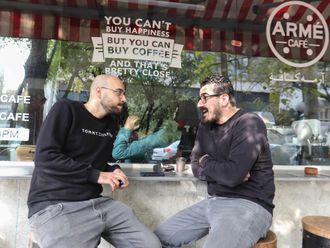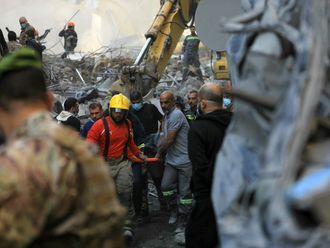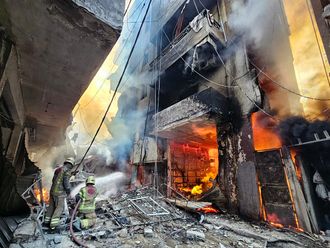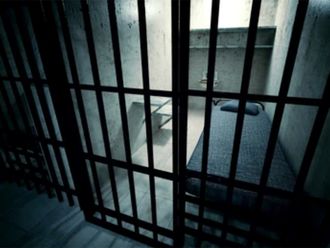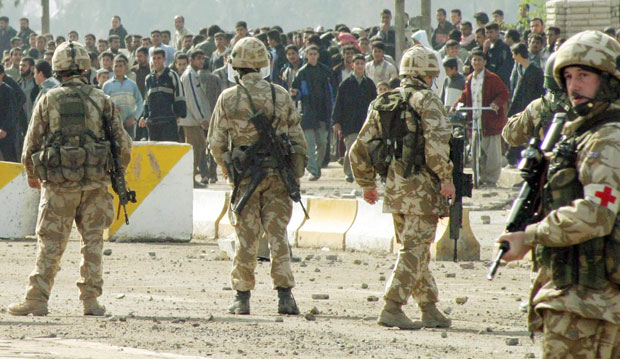
Baghdad: Hundreds of British troops will be sent to Iraq in the new year as the war against the militants enters a new phase, Britain’s Defence Secretary, Michael Fallon, has announced.
In an exclusive interview with The Sunday Telegraph, Fallon says British military personnel will train Iraqi and Kurdish forces to fight Daesh from January.
A small “force protection” deployment of combat-ready soldiers is also expected to be sent to defend the training teams, who will be based at four centres inside Iraq, Fallon said.
The mission represents the first significant deployment of ground forces to Iraq since the last British troops withdrew in 2011, following the 2003 invasion which toppled Saddam Hussain.
The details of the plan are expected to be finalised within days but Fallon said the number of troops involved would be in the low “hundreds”. At present, there are 50 British troops in Iraq training local forces.
The announcement marks a new stage in Britain’s involvement in the fight against the extremists. The RAF has conducted “a huge number” of air strikes against Daesh, “second only to the United States, five times as many as France”, Fallon said. But the bombing raids have forced Daesh commanders to change tactics and lie low in towns, meaning the ground war must now be stepped up.
“They are not using large formations out in the open any more,” Fallon said. “They are increasingly tucked away in towns and villages. That means they have got to be rooted out by ground troops. This has to be done by an own-grown army, not by western groups.”
However, Iraqi forces lack the training, equipment and specialists they need to defeat Daesh and this is where Britain will take the lead in January, he said. In particular, British experts will share their knowledge of bomb disposal techniques, gained from years of dealing with roadside devices in Afghanistan. “Our role now, apart from the air strikes, is increasingly going to be on training,” he said.
In particular, it will mean dealing with car and truck bombs, and roadside improvised explosive devices (IEDs), as well as basic infantry skills. “We have not finalised numbers yet — obviously we have got a lot of kit back from Afghanistan that we can make available — but we are talking very low hundreds.”
The training teams will be based in four “safe areas” — one in Kurdish territory and the other three nearer to Baghdad. A group of combat-ready soldiers in a so called “force protection” unit will also “probably” be British, Fallon said. These soldiers will not be expected to fight a war but will be there to defend the British personnel if necessary.
“The trainers themselves will have to be protected but the training areas are not where the fighting is. They are in safe areas, but obviously there’s always a small element of force protection.”
American commanders have said the Coalition’s training mission will involve about 1,500 soldiers from all countries in total.
Britain joined US-led air strikes earlier this year after the Commons voted in favour of raids on Daesh targets in Iraq. However, the UK has not joined the US in bombing targets across the border in Syria, despite the fact the government believes such action would be legal.
Labour has declined to support military action in Syria and ministers do not want to risk a defeat in the Commons. Fallon added that Britain was drawing up plans to provide training to moderate Syrian opposition groups on how to defend themselves, he said.


